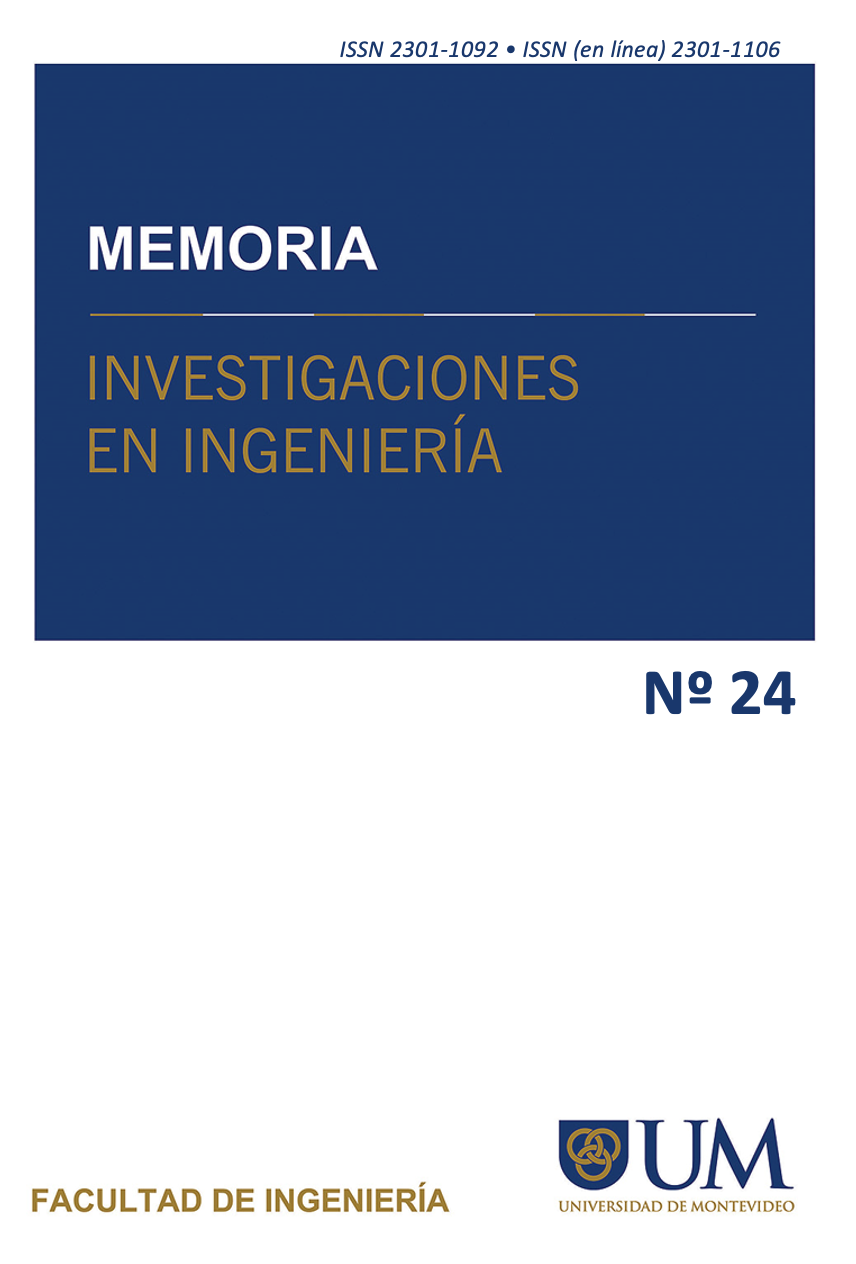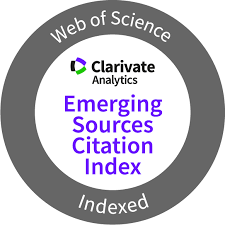Monitoring and control system for an indoor cannabis cultivation
DOI:
https://doi.org/10.36561/ING.24.12Keywords:
6LoWPAN, Indoor, Cannabis, Monitoring, ControlAbstract
Indoor cultivation is widely used due to its advantages for growing plants in a controlled environment. In this method, the necessary elements for plant growth are artificially managed. In Uruguay, several ventures have emerged applying this cultivation technique since the approval of the law that regulates cannabis production. Like any production process, indoor cultivation presents various technological challenges aimed at optimizing its performance.
This paper presents the results obtained in the development of a monitoring and control system applied to an indoor cannabis greenhouse. It includes the analysis carried out to identify the relevant variables to be monitored and the selection of processes to be controlled. Furthermore, the development of a wireless network is described, consisting of a series of sensors for different variables and a set of distributed actuators. These components record the process variables and provide information that is stored in a database and visualized through a user interface. The monitored variables include soil humidity and temperature, ambient humidity and temperature, CO2 concentration, light level, and water pH level.
The network is composed of a supervisory computer with internet connection and distributed units. There are two types of distributed units: Distributed Control Units (DCUs) and Pot Nodes (PNs). These elements work with System-on-Chip modules, with a radio link that allows communications following the IEEE 802.15.4 standard. They use the Contiki-NG operating system, designed to implement a 6LoWPAN wireless communication network, and utilize the CoAP protocol at the application layer.
We hope that this work contributes to the development of distributed monitoring and control systems applied to agroindustry.
Downloads
References
Presidencia de la República Oriental del Uruguay; Ley 19.172, 2013. Disponible Online (Consultado: 30/05/2023): http://archivo.presidencia.gub.uy/sci/leyes/2013/12/cons_min_803.pdf
Appolloni E. et all; Beyond vegetables: effects of indoor LED light on specialized metabolite biosynthesis in medicinal and aromatic plants, edible flowers, and microgreens, Journal of The Science of Food and Agriculture, 2022. Vol 102(2): p. 472-487. DOI: https://doi.org/10.1002/jsfa.11513
Palande, V., Zaheer, A. y George, K., Fully Automated Hydroponic System for Indoor Plant Growth, Procedia Computer Science, 2018. Vol. 129. DOI: https://doi.org/10.1016/j.procs.2018.03.028
Pertwee, R. y Potter, D. J.; Handbook of Cannabis, Chapter 4, Cannabis Horticulture. 2014. Oxford University Press, Print ISBN-13: 9780199662685 DOI: https://doi.org/10.1093/acprof:oso/9780199662685.001.0001
Alonso, D., Menoni, C. y Saravia, F.; (2022.). Sistema de monitoreo y control de cultivo indoor de cannabis. Tesis de grado. Universidad de la República, Facultad de Ingeniería (Uruguay), 2022. Disponible Online (Consultado: 3/06/2023): https://hdl.handle.net/20.500.12008/35421
Sociedad Española de Investigación sobre Cannabinoides, Guía Básica sobre los Cannabinoides. Universidad Complutense de Madrid, 2002. Disponible Online (Consultado: 3/06/2023): https://www.seic.es/wp-content/uploads/2013/10/guiab%C3%A1sicacannab.pdf
Cervantes, J., Marijuana Horticulture: The Indoor/Outdoor Medical Grower’s Bible, Van Patten Publishing, Vancouver, WA, 2006.
Jin, D., Jin, S. y Chen, J.; Cannabis Indoor Growing Conditions, Management Practices, and Post-Harvest Treatment: A Review. American Journal of Plant Sciences, 2019, Vol 10: p. 925-946 DOI: https://doi.org/10.4236/ajps.2019.106067
Adams, P., Marijuana Indoor Growing, Positive Publishers b.v.b.a, Amsterdam, The Netherlands, 2007.
Contiki-NG Community. Disponible Online (Consultado: 8/6/2023): https://github.com/contiki-ng/contiki-ng/wiki
Shelby, Z., Hartke, K., and C. Bormann., The Constrained Application Protocol (CoAP). RFC 7252, June 2014. Disponible Online (Consultado: 8/6/2023): https://www.rfc-editor.org/info/rfc7252 DOI: https://doi.org/10.17487/rfc7252
Hartke, K., Observing Resources in the Constrained Application Protocol (CoAP). RFC 7641, September 2015. Disponible Online (Consultado: 8/6/2023): https://www.rfc-editor.org/info/rfc7641 DOI: https://doi.org/10.17487/RFC7641
Published
How to Cite
Issue
Section
License
Copyright (c) 2023 Carlos Menoni, Diego Alonso, Felipe Saravia, Nicolás Pérez, Leonardo Steinfeld

This work is licensed under a Creative Commons Attribution 4.0 International License.






















